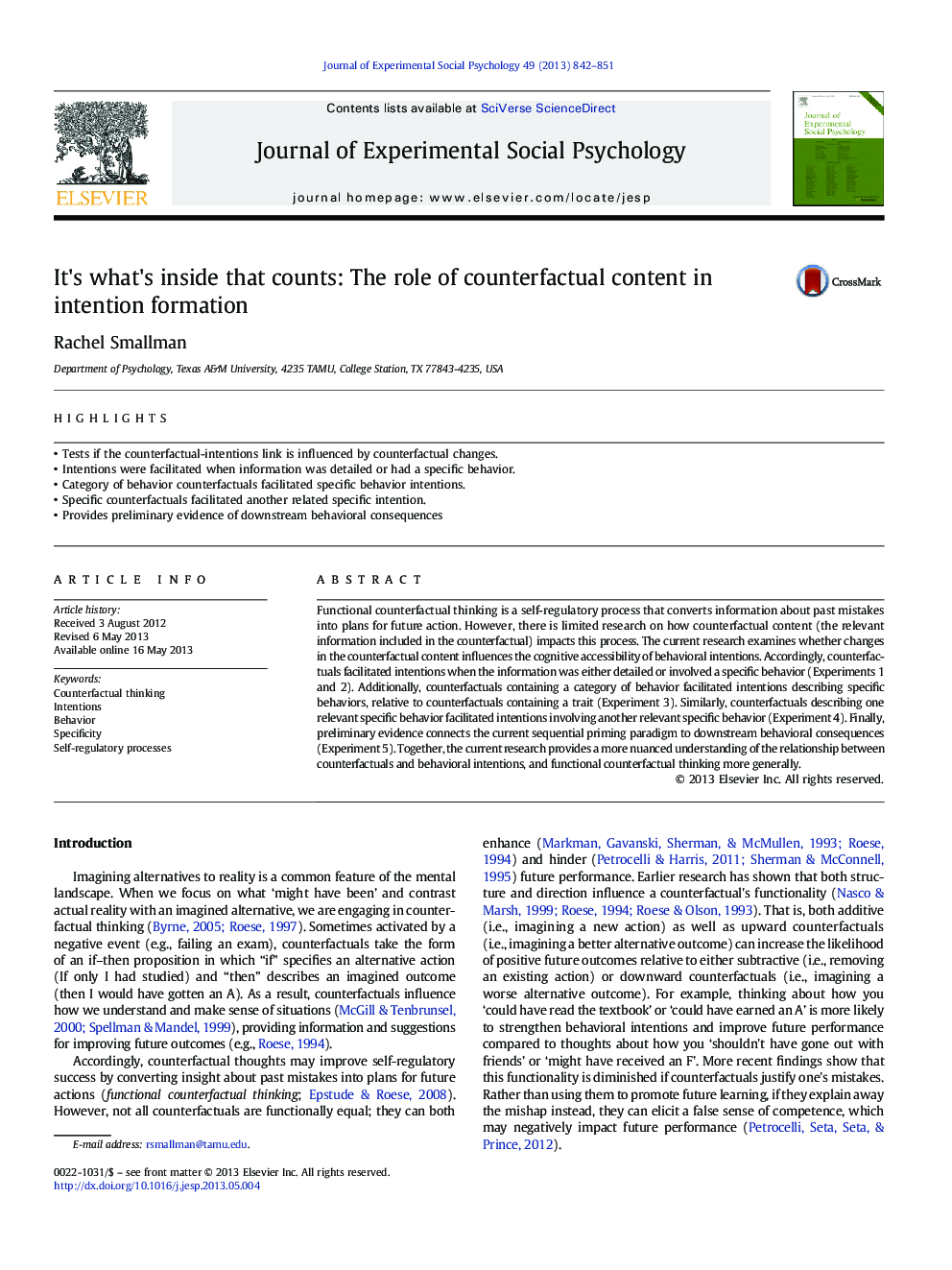| Article ID | Journal | Published Year | Pages | File Type |
|---|---|---|---|---|
| 948015 | Journal of Experimental Social Psychology | 2013 | 10 Pages |
•Tests if the counterfactual-intentions link is influenced by counterfactual changes.•Intentions were facilitated when information was detailed or had a specific behavior.•Category of behavior counterfactuals facilitated specific behavior intentions.•Specific counterfactuals facilitated another related specific intention.•Provides preliminary evidence of downstream behavioral consequences
Functional counterfactual thinking is a self-regulatory process that converts information about past mistakes into plans for future action. However, there is limited research on how counterfactual content (the relevant information included in the counterfactual) impacts this process. The current research examines whether changes in the counterfactual content influences the cognitive accessibility of behavioral intentions. Accordingly, counterfactuals facilitated intentions when the information was either detailed or involved a specific behavior (Experiments 1 and 2). Additionally, counterfactuals containing a category of behavior facilitated intentions describing specific behaviors, relative to counterfactuals containing a trait (Experiment 3). Similarly, counterfactuals describing one relevant specific behavior facilitated intentions involving another relevant specific behavior (Experiment 4). Finally, preliminary evidence connects the current sequential priming paradigm to downstream behavioral consequences (Experiment 5). Together, the current research provides a more nuanced understanding of the relationship between counterfactuals and behavioral intentions, and functional counterfactual thinking more generally.
